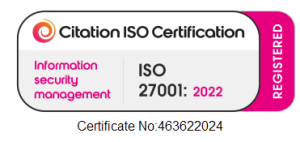What’s the Best Wi-Fi Setup for a Business?
Every modern business relies on fast, reliable wireless internet. Seamless Wi-Fi connectivity has become an expectation for employees and customers alike. But what exactly is the best Wi-Fi setup for a business, and how do you ensure it meets enterprise standards?
In this guide, we’ll explore optimal Wi-Fi solutions for business from the needs of a small office to large enterprise Wi-Fi deployments and highlight the top equipment (routers, access points, etc.) that can keep your business connected securely and efficiently.

Wi-Fi Solutions for Business
Setting up business Wi-Fi isn’t as simple as plugging in a home router. Business Wi-Fi solutions are designed to handle more users, bigger spaces, and greater security demands than home networks.
- Scalability and Capacity: The network must accommodate multiple employees and guests without slowing down. Unlike a home setup, a business Wi-Fi network should maintain fast speeds even with many devices connected.
- Reliability and Coverage: Coverage should span your entire office or facility with no dead zones. Often this requires more than one wireless access point or a mesh system, especially in larger offices or multiple floor buildings. A professional Wi-Fi site survey is a smart starting point.
- Security: Business networks carry sensitive data, so strong security is non negotiable. This includes using enterprise grade Wi-Fi security (WPA2 or WPA3 encryption), a solid firewall, and possibly separate networks (SSIDs) for guests, staff, and IoT devices.
- Managed Solutions: For simplicity and consistency, businesses often opt for managed Wi-Fi solutions. Managed solutions ensure your Wi-Fi is monitored, updated, and optimised continuously which is especially useful if you don’t have an in-house IT team.
Best Enterprise Wi-Fi Solutions
For larger organisations or those with mission critical connectivity needs, enterprise Wi-Fi solutions are the gold standard. Enterprise APs are in a whole different league from consumer routers; they’re built for speed, capacity, and scale.
Key features of enterprise Wi-Fi setups include:
- Centralised Management: Enterprise Wi-Fi systems often use a wireless LAN controller or cloud managed platform. This allows IT administrators to manage all access points, centrally pushing configurations, optimising radio channels, and ensuring seamless roaming for users moving around the building.
- Multiple Access Points with Wired Backhaul: Rather than relying on a single powerful router, enterprise setups deploy numerous APs, each wired into the network via Ethernet for full backhaul speed.
- High Density & Performance Hardware: Enterprise APs and routers come with advanced hardware, multiple antennas (often using MIMO technology), support for the latest Wi-Fi standards (Wi-Fi 6 or Wi-Fi 6E, and emerging Wi-Fi 7), and the ability to use dual or tri band frequencies.
- Enterprise Security & Guest Networks: Advanced security features support WPA3 encryption, 802.1X authentication with RADIUS, network segmentation via VLANs, and sometimes built-in firewalls at the AP level.
- Some best enterprise Wi-Fi solutions in the market (in terms of hardware) include Cisco Meraki’s MR series access points, HPE/Aruba enterprise APs, Ruckus Wireless APs, and Ubiquiti’s UniFi enterprise lines. Other top tier options include the Aruba 650 Series and Ruckus R750 for high performance in busy environments.
Best Wi-Fi Routers for Small Business
| Router Series | Best For | Key Features | Scalability | Ease of Use | Price Range |
|---|---|---|---|---|---|
| Cisco Meraki MX / Meraki Go | Businesses prioritising security & remote management | Advanced cloud managed security, easy scalability, guest networks | Very scalable, ideal for growing networks | Very easy (cloud managed) | £££ |
| Netgear Nighthawk Pro Series | Small to mid-sized businesses needing high speed & good range | High speeds, good range, QoS features, affordable enterprise like performance | Moderate scalability | Easy (app & web interface) | ££ |
| Ubiquiti UniFi Dream Machine / UDM Pro | Tech savvy small businesses wanting allinone solution | Combines router, switch, Wi-Fi AP, and security gateway; scalable | Highly scalable with additional UniFi APs | Moderate (some IT knowledge helps) | ££ |
| TP-Link Archer & Omada Series | Businesses on a tight budget | Strong basic performance (Wi-Fi 6), affordable, easy setup | Can scale using Omada APs and switches | Easy | £ |
Conclusion
In summary, the best Wi-Fi setup for a growing business often involves a hybrid of a robust router and strategically placed access points. Start with a solid router or gateway, then add APs to eliminate dead zones and expand capacity as needed. Ensure all components routers, switches, APs are business class so they can handle heavy use. Don’t forget proper configuration: set strong encryption, update firmware regularly, and use network monitoring (many devices provide cloud or app based monitors) to catch any issues early. With the right planning and equipment, your business Wi-Fi can be as fast and dependable as a wired network, but with the flexibility of wireless.
At Nortech, we specialise in designing and installing these kinds of scalable wireless networks for UK businesses from initial wireless surveys to full deployment. If you need help finding the best Wi-Fi solution, our team is ready to assist.
FAQs
About Nortech Network Services
At Nortech, we are an independent IT infrastructure company with offices in Northampton and Milton Keynes. Since 2000, we’ve helped businesses across the UK get connected, stay secure, and work smarter.
From cabling and wireless to AV, security, and IT support, we handle the lot. Our engineers know their stuff, and because we’re vendor-neutral, you get advice that’s honest and cost-effective.
If your systems are slow, outdated or holding your business back, give us a call. We’ll help you sort it out without the jargon or drama.


